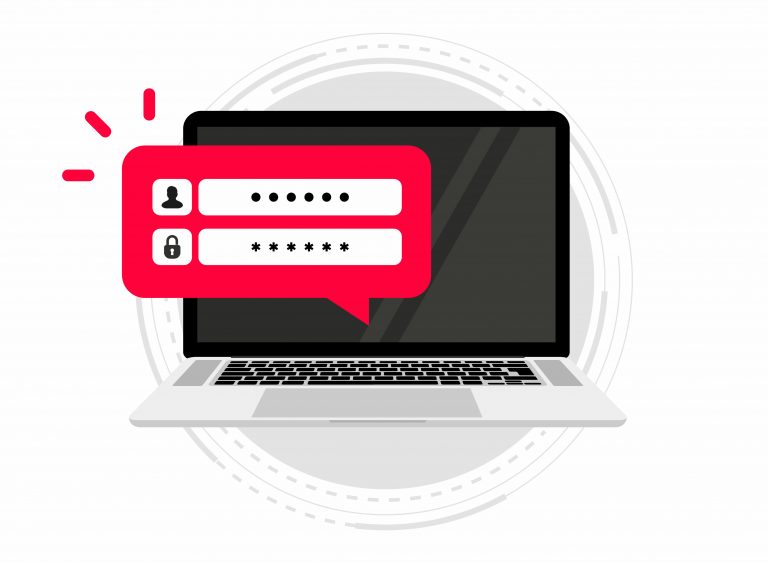Securing Your Health Data: Privacy Measures in Telemedicine
January 25, 2024Telemedicine has become an increasingly popular option for accessing healthcare services, allowing patients to consult with healthcare providers remotely. What…

Online gaming has become a popular pastime for people of all ages, with millions of players around the world logging in to play their favorite games every day.
Personal information in online gaming refers to any data or details that can be linked to an individual player’s virtual identity and gaming activities.
Online gaming involves a vast amount of information, such as usernames, email addresses, IP addresses, payment details, and in-game communication. This data, known as player data, plays a crucial role in enhancing the gaming experience by enabling game progress, personalized interactions, and social connections. Gaming companies typically gather and store this data to improve user experiences and offer targeted content. However, the collection and utilization of personal information in online gaming also raise privacy concerns and increase the risk of unauthorized access or data breaches.
Online gaming privacy is crucial for safeguarding the player’s identity and personal information from potential cyber threats and vulnerabilities.
With the rising popularity of online gaming platforms, privacy concerns have become increasingly significant. Players often provide sensitive information while engaging in virtual gameplay or interacting with in-game communities.
Safeguarding these details is essential to prevent unauthorized access, identity theft, and potential exploitation. Furthermore, protecting privacy in gaming environments fosters trust among players and contributes to a safer and more enjoyable gaming experience.
Failing to protect your identity in online gaming can lead to severe consequences, exposing you to potential risks and cyber threats in online games that compromise your privacy and security.
Online gaming platforms are increasingly targeted by hackers and cybercriminals who seek to exploit vulnerabilities in gaming networks. By neglecting identity protection, players open themselves up to account theft, fraud, and even identity theft, as personal information stored on gaming platforms can be exposed.
A compromised identity in online gaming can lead to social engineering attacks, where malicious individuals gather personal details to manipulate players into disclosing sensitive information. These threats can have far-reaching repercussions beyond the gaming environment, affecting financial and personal well-being.
Your identity in online gaming can be compromised through various methods such as hacking, social engineering, and phishing scams, posing significant risks to your security breach your personal information and privacy.
Hacking involves unauthorized access to gaming servers or individual accounts, potentially leading to bank account takeover and unauthorized transactions.
Social engineering tactics can manipulate gamers into revealing their login or gaming account credentials or personal information through deceitful means. Phishing scams often manifest as fraudulent emails or websites designed to trick players into divulging valuable account details, such as usernames and passwords, contributing to identity theft and financial loss.
Hacking poses a significant threat in the online gaming environment, as cybercriminals exploit vulnerabilities to gain unauthorized access to player data and compromise their privacy and security.
These cybercriminals often employ a range of tactics, including phishing scams, malware, and DDoS attacks, to infiltrate gaming platforms and networks.
The interconnected nature of online gaming communities can facilitate the spread of malicious software and the exploitation of security weaknesses. Along with compromising personal information, such as usernames, passwords, and payment details, hackers can also manipulate in-game economies and disrupt gameplay experiences for legitimate players.
Social engineering tactics are employed in online gaming to manipulate players into divulging personal information or bypassing privacy controls, leading to potential privacy and security breaches.
These tactics often involve the exploitation of trust and human psychology to deceive players into sharing sensitive details, such as login credentials, financial data, or personal identifiers.
This information can then be used for fraudulent activities. Social engineering techniques can also bypass privacy settings, exposing users to risks such as identity theft, cyberstalking, or unauthorized access to their gaming accounts and associated personal information.
Phishing scams represent a prevalent threat in the online gaming world, targeting players to obtain personal information and perpetrate cyber threats, emphasizing the importance of safeguarding against such risks.
Online gaming platforms provide fertile ground for cybercriminals to deploy phishing scams. These scams often use deceptive emails and websites to lure unsuspecting players into divulging sensitive personal information.
Unfortunately, falling victim to these scams not only jeopardizes personal data security but also paves the way for account theft, fraudulent purchases, and malware infections. To protect themselves, players should remain vigilant and employ robust security measures, such as multi-factor authentication and skepticism towards unsolicited communications.
Protecting your identity in online gaming involves crucial steps such as using strong passwords, enabling two-factor authentication, and utilizing a virtual private network (VPN) for enhanced security.
Strong passwords should be unique and complex, incorporating a mix of uppercase and lowercase letters, numbers, and special characters to reduce the risk of unauthorized access.
Two-factor authentication adds an extra layer of security by requiring a secondary form of verification, such as a code sent to your mobile device.
Using a VPN helps safeguard your online gaming activities by encrypting your internet connection and masking your IP address, thus preventing potential hackers from intercepting sensitive information.
Using strong and unique passwords is a fundamental measure in enhancing security for online gaming, complemented by regular updates and responsible gaming habits to mitigate potential risks.
Strong and unique passwords serve as an essential shield against unauthorized access and potential breaches in online gaming platforms. By incorporating a combination of upper and lower case letters, numbers, and symbols, players can significantly bolster the security of their accounts.
Regular security patches and updates further fortify the defense against evolving cyber threats. These patches address vulnerabilities and bugs, reducing the susceptibility of gaming platforms to malicious attacks.
Practicing responsible gaming habits, such as avoiding sharing personal information and being cautious of phishing attempts, adds an extra layer of protection. It enables players to enjoy their gaming experience without compromising their security.
Enabling two-factor authentication adds an extra layer of security to safeguard player data and secure payment gateways within gaming accounts, offering enhanced protection against potential cyber threats.
Two-factor authentication requires users to provide two forms of identification before gaining access to their accounts. This can include a password combined with a unique code sent to their mobile device or email.
By implementing this additional step, gaming platforms mitigate the risk of unauthorized access and fraudulent activities. Not only does it protect sensitive personal information, but it also fortifies the integrity of transactions made through the payment gateways integrated into multiple gaming platforms and systems.
The implementation of two-factor authentication in online gaming offers peace of mind to players, assuring them that their accounts and associated data are secure from unauthorized access and potential compromises. With the escalating number of cyber threats and breaches, the use of two-factor authentication serves as a proactive measure to defend against unauthorized access and fraudulent activities in the digital gaming landscape.
Being mindful of what you share online is essential to safeguarding your privacy in the context of gaming and online activities, as it minimizes the exposure of personal information to potential risks.
When individuals engage in the online activity of gaming, they often create virtual identities, interact with other players, and exchange messages, sharing a part of their personal lives in the virtual world.
This digital environment can sometimes blur the boundaries between real life and the game, raising concerns about the privacy and security of the information shared. The integration of social features in many games makes it easier for players to inadvertently disclose personal details, making privacy considerations vital for maintaining a safe and enjoyable gaming experience.
Utilizing a virtual private network (VPN) enhances wireless security and mitigates cyber threats within the online gaming industry, offering a safeguarding mechanism for player privacy and data protection.
Along with safeguarding privacy and data, a VPN provides a secure tunnel for online gaming traffic, preventing potential attacks from hackers and malicious entities. It encrypts the data transmitted between the gaming device and game servers, reducing the risk of unauthorized access.
Using a VPN can also help bypass geo-restrictions, allowing players to gain access to games and servers that may be restricted geographically. This enhances the overall gaming experience by providing access to a wider range of gaming content.
The privacy policies of popular online gaming platforms outline the privacy controls and data protection measures implemented to safeguard player privacy and secure gaming on mobile devices.
These policies serve as a crucial framework for online gaming platforms to establish boundaries for the collection, usage, and sharing of user data. This ensures that player information is handled responsibly.
By defining rules for data security, privacy policies play a vital role in maintaining transparency and establishing trust between the gaming community and the platform operators.
These policies also influence the implementation of strict security protocols and encryption methods. This is to protect sensitive user information from unauthorized access.
Steam, as one of the leading gaming platforms, prioritizes cybersecurity measures to ensure a secure online gaming environment and protect user privacy from potential threats.
Utilizing encryption techniques, multi-factor authentication, and regular security updates, Steam strengthens its defense mechanisms against unauthorized access and data breaches.
Its comprehensive approach includes robust firewalls, proactive monitoring of network traffic, and continuous vulnerability assessments to mitigate security risks. Steam enables users with privacy settings, enabling them to control their data-sharing preferences and safeguard personal information.
By fostering a culture of security awareness and education among game developers, Steam remains committed to enhancing cybersecurity resilience within the gaming community.
Xbox Live, a popular gaming platform, ensures secure payment gateways and promotes a secure virtual economy within online gaming, prioritizing user privacy and data protection.
Through Xbox Live, gamers can make transactions with confidence, knowing that their financial information is safeguarded by robust encryption and stringent security measures.
This emphasis on secure payment gateways not only fosters trust among the gaming community but also contributes to the creation of a secure and flourishing virtual economy within the platform.
The PlayStation Network incorporates measures for secure in-game purchases and encourages the use of strong unique passwords to enhance user security and protect player privacy within the online gaming environment.
One of the key security measures implemented by the PlayStation Network is the use of encryption to secure in-game purchases. This ensures that financial transactions are protected from unauthorized access.
The network promotes the adoption of strong unique passwords, which play a crucial role in safeguarding user accounts from unauthorized access and potential data breaches. By encouraging users to choose complex combinations of characters and regularly update their passwords, the PlayStation Network aims to bolster the overall security of the platform and protect user privacy.
The network continuously enhances its security protocols to counter emerging threats and safeguard user data. This reinforces its commitment to providing a secure and trustworthy gaming environment.
Safeguarding your identity in online gaming is imperative to mitigate cyber threats, implement privacy controls, and ensure a secure and enjoyable online gaming experience for all players.
When players take proactive measures to protect their digital identity, they reduce the risk of falling victim to various cyber threats, such as identity theft and hacking. This not only secures personal information but also helps in maintaining the integrity of the gaming community.
Protecting player identity plays a pivotal role in ensuring that privacy controls are effectively applied, enabling gamers to have control over what information they share and with whom.
Furthermore, protecting player identity significantly contributes to enhancing the overall gaming experience. It fosters a sense of trust and security among players, leading to a more positive and enjoyable gaming environment. When individuals feel secure in their online interactions, they are more likely to engage actively and continually contribute to the gaming community.

Telemedicine has become an increasingly popular option for accessing healthcare services, allowing patients to consult with healthcare providers remotely. What…

In a world where cyber threats are becoming increasingly sophisticated, the importance of having strong passwords cannot be overstated. But…

Are you looking for a new job while still employed? Discreet job searching online is the key to keeping your…